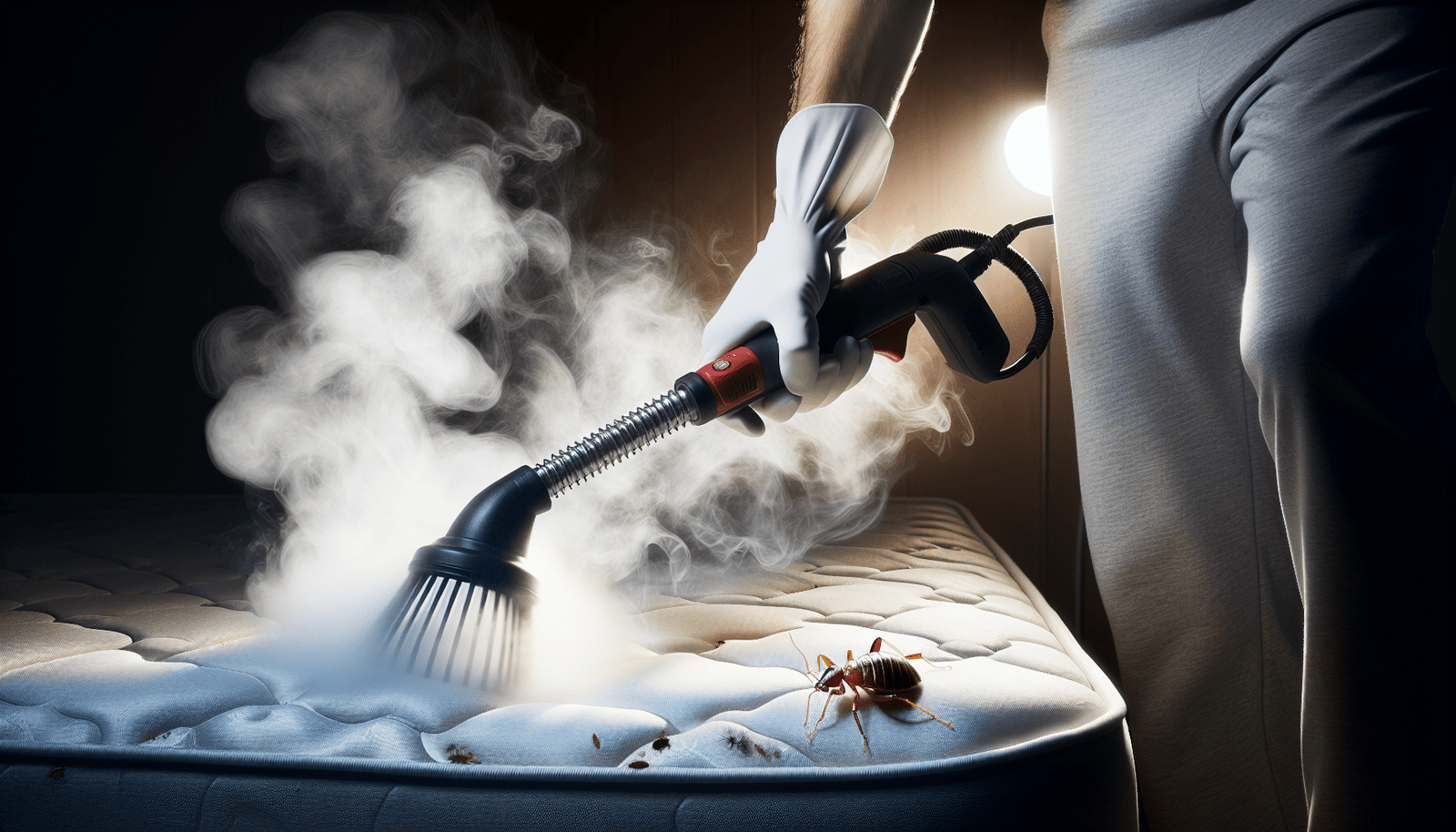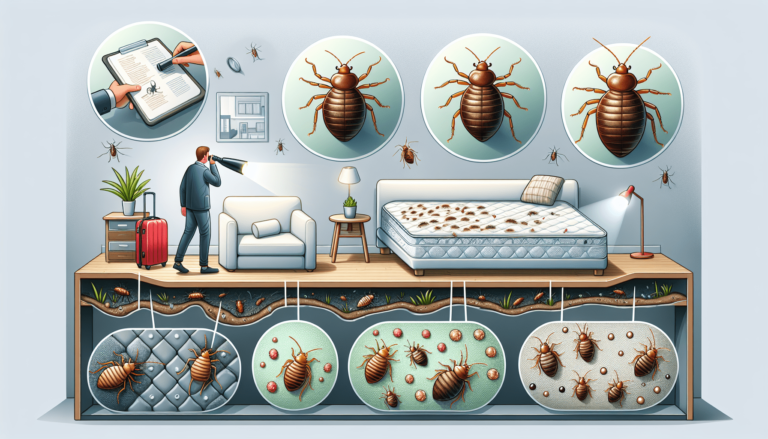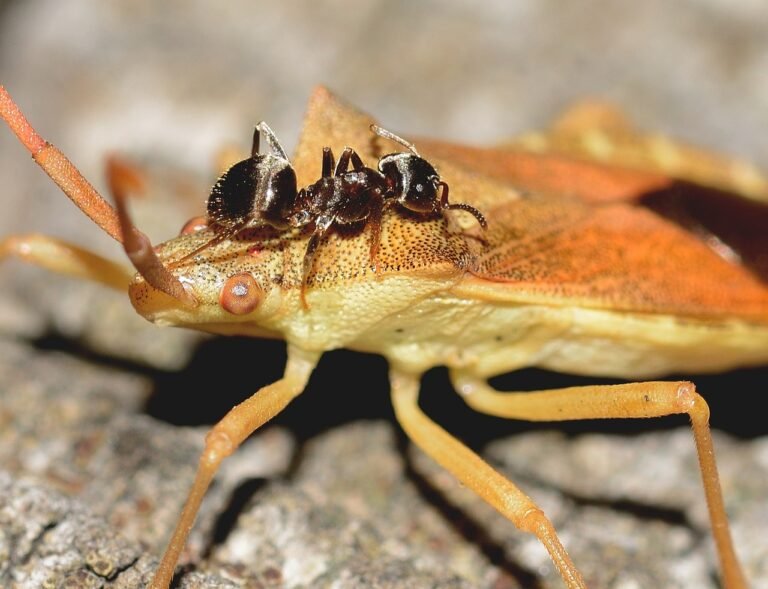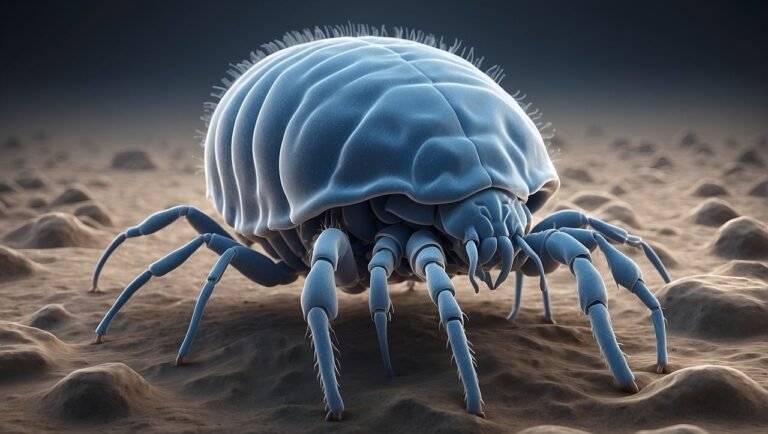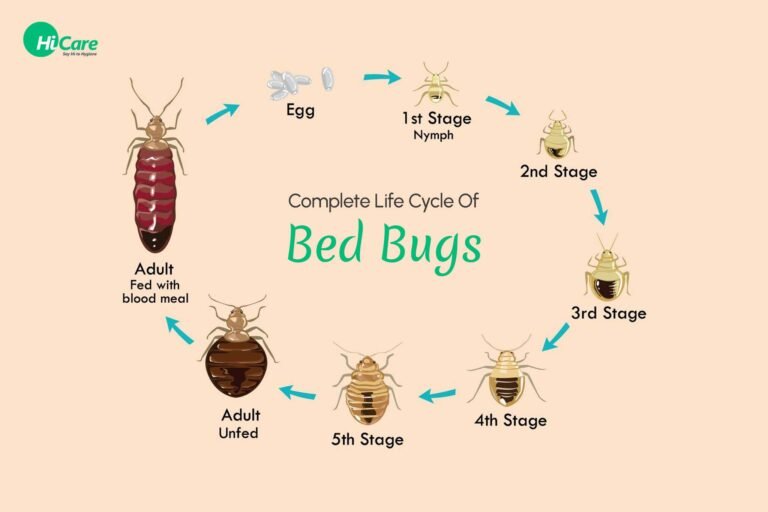How Can I Kill Bed Bugs Fast
Are you struggling with a bed bug infestation and desperately searching for a quick solution? Look no further. In this article, we will provide you with expert advice and proven methods to effectively eliminate bed bugs from your home. From comprehensive lists of effective treatments to insightful statistics and data, we’ve got you covered. Our goal is to equip you with the necessary knowledge to tackle this common and persistent problem. Say goodbye to sleepless nights and hello to a bug-free home. Read on to discover the best strategies for killing bed bugs fast.
Understanding Bed Bugs
Bed bugs are small, flat, oval-shaped insects that are notorious for infesting homes and causing sleepless nights. These pesky creatures are usually brown or reddish-brown in color and can easily go unnoticed due to their small size. Despite their name, bed bugs can be found in various areas of a home, including furniture, cracks in walls, and even electrical outlets.
Identifying Bed Bugs
Identifying bed bugs can be challenging, as they are skilled at hiding in cracks and crevices during the day and emerging at night to feed on human blood. However, there are a few signs that can help you determine if you have a bed bug infestation. These signs include:
-
Visible Bed Bugs: Adult bed bugs are about the size of an apple seed and can be seen with the naked eye. They are flat, wingless insects that have a distinctively oblong shape.
-
Bed Bug Bites on Skin: Bed bug bites typically appear as small, red, and itchy welts on the skin. The bites often occur in a clustered pattern and can be found on exposed areas of the body, such as the arms, legs, and face.
-
Blood Stains and Dark Spots on Bedding: When bed bugs feed, they leave behind blood stains which can be visible on bedsheets, pillowcases, and mattresses. Additionally, they also leave behind dark spots of excrement that can be found in the seams of mattresses or along baseboards.
Bed Bug’s Lifecycle
To effectively combat a bed bug infestation, it’s crucial to understand their lifecycle. Bed bugs go through various stages of development: egg, nymph, and adult.
-
Egg: Female bed bugs can lay up to 5 eggs per day, and these eggs are usually laid in cracks and crevices near their hiding places. Bed bug eggs are tiny, about the size of a pinhead, and are often difficult to spot.
-
Nymph: Once the eggs hatch, nymphs emerge. Nymphs are smaller versions of adult bed bugs and must feed on blood to molt and grow to the next stage. They go through several molting stages before reaching adulthood.
-
Adult: Adult bed bugs reach full maturity after multiple molts and are capable of reproducing. They can live for several months to over a year under favorable conditions.
Bed Bug’s Habits
Understanding the habits and behavior of bed bugs is essential to effectively eradicate them from your home. Here are a few key points to note:
-
Nocturnal Feeders: Bed bugs are primarily nocturnal feeders, with peak activity occurring during the late hours of the night when people are asleep. They are attracted to the carbon dioxide and warmth emitted by humans during sleep.
-
Hiding Places: Bed bugs are infamous for their ability to hide in tiny cracks and crevices during the day, making it difficult to spot them. They are commonly found in mattresses, box springs, bed frames, and other furniture near areas where humans rest.
-
Travelers: Bed bugs are excellent hitchhikers and can easily infest new locations by clinging onto luggage, clothing, or other personal belongings. This is why it’s crucial to be vigilant when staying in hotels or traveling to prevent bringing bed bugs back home.
Why Bed Bugs are a Problem
Bed bugs pose several problems for those unfortunate enough to have an infestation in their homes. These problems range from health risks to psychological impact and economic costs.
Health Risks of Bed Bugs
While bed bugs are not known to transmit diseases, their bites can lead to health complications. Bed bug bites can cause itching, redness, and swelling, which can lead to secondary infections if scratched excessively. Some individuals may also develop an allergic reaction to bed bug bites, which can result in more severe symptoms.
Psychological Impact of Bed Bug Infestation
Bed bug infestations can take a toll on an individual’s mental health. The constant fear of being bitten and the anxiety of dealing with an infestation can result in sleep disturbances, anxiety disorders, and even depression. The mental distress caused by bed bugs can significantly impact a person’s quality of life.
Economic Costs related to Bed Bugs
Bed bug infestations can also be financially burdensome. The costs associated with hiring professional pest control services, replacing infested furniture, and treating bites and related health issues can quickly add up. Additionally, bed bug infestations can lead to property devaluation and reputation damage in commercial settings, such as hotels and rental properties.
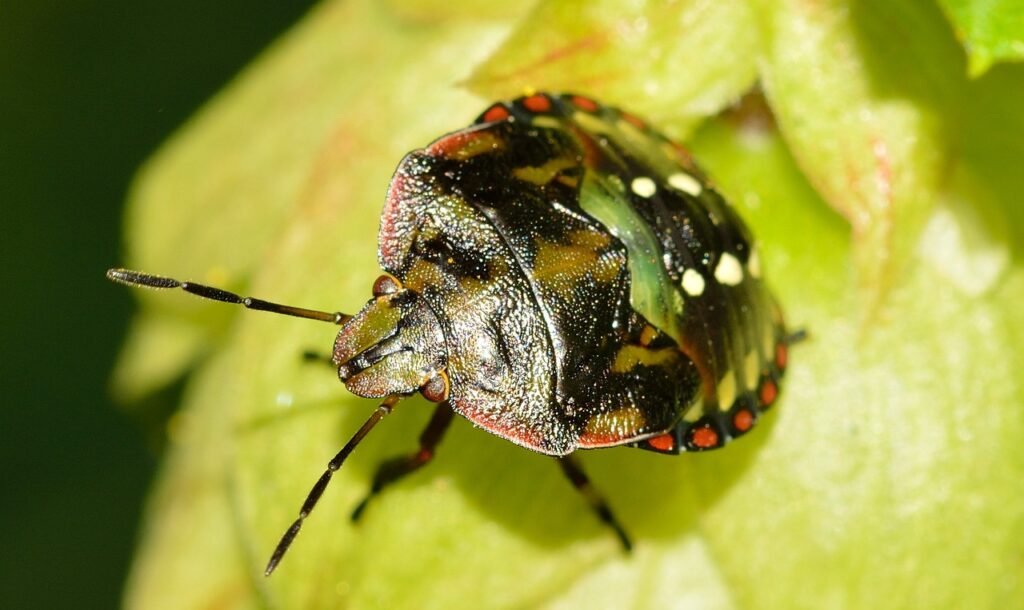
This image is property of pixabay.com.
Signs of a Bed Bug Infestation
Discovering a bed bug infestation early is crucial for effective control and eradication. Here are some signs to look out for:
Visible Bed Bugs
Adult bed bugs are visible to the naked eye and can be found in the seams of mattresses, along baseboards, and even in electrical outlets. They are often active during the night and may scatter when disturbed.
Bed Bug Bites on Skin
Bed bug bites are typically red, itchy welts that appear on exposed areas of the body. They often occur in clusters or in a line pattern, as bed bugs tend to bite multiple times in one area.
Blood Stains and Dark Spots on Bedding
When bed bugs feed, they leave behind blood stains on bedsheets or pillowcases. These stains may appear as reddish-brown spots. Additionally, they also leave behind dark spots of bed bug excrement, which can be found on bedding or along baseboards.
DIY Methods to Kill Bed Bugs
If you have identified a bed bug infestation in your home, there are several do-it-yourself (DIY) methods you can try before seeking professional help. Here are some effective DIY methods to kill bed bugs:
Heat Treatment: Cleaning Bedding and Clothes
One effective method to kill bed bugs and their eggs is by laundering infested bedding and clothing in hot water. Use the highest temperature recommended for the fabric and dry them on high heat or under direct sunlight. This can help eliminate bed bugs hiding in these items.
Using Bed Bug Sprays
There are numerous bed bug sprays available in the market that can be used to treat infested areas. Look for sprays specifically labeled for bed bug control and follow the instructions carefully. Always use caution when handling pesticides and strictly adhere to safety guidelines.
Use Vacuum Cleaner
Regularly vacuuming infested areas can help reduce the number of bed bugs. Use a vacuum cleaner with a HEPA filter to capture bed bugs and their eggs effectively. Be sure to empty the vacuum bag or canister into a sealed plastic bag and dispose of it immediately to prevent reintroducing the bed bugs into your home.
Sealing Infected Items
To prevent bed bugs from spreading to other areas of your home, seal infested items, such as mattresses or upholstered furniture, in plastic covers. This can help trap any remaining bed bugs inside, eventually causing them to die.
Using Diatomaceous Earth
Diatomaceous earth is a natural substance that can be used to kill bed bugs. It consists of fossilized remains of plankton and acts as a desiccant, drying out the bed bugs and causing their eventual death. Apply diatomaceous earth in cracks, crevices, and other areas where bed bugs hide.
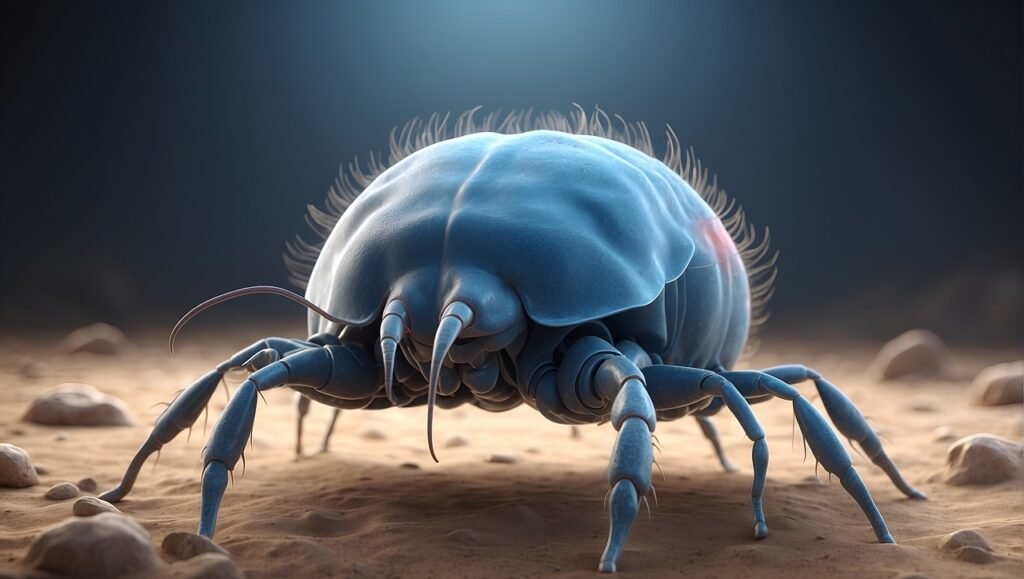
This image is property of pixabay.com.
Professional Methods to Kill Bed Bugs
If DIY methods prove ineffective or if the infestation is severe, it may be necessary to seek professional help. Pest control companies have access to specialized treatments and equipment designed to eradicate bed bugs. Here are some professional methods commonly used:
Hiring a Pest Control Company
Professional pest control companies have the expertise and experience to effectively eliminate bed bug infestations. They will conduct a thorough inspection of your home, identify the extent of the infestation, and develop a customized treatment plan tailored to your specific situation.
Professional Heat Treatments
Heat treatments involve raising the temperature of the infested area to a level that is lethal to bed bugs. This method effectively kills both adult bed bugs and their eggs, ensuring complete eradication. Professional heat treatments often involve the use of specialized equipment and should only be performed by trained professionals.
Use of Pesticides
Pesticides can be an effective tool in combating bed bug infestations when used correctly. Pest control professionals have access to a range of insecticides specifically designed for bed bug control. They will carefully apply the appropriate pesticides to infested areas while following safety protocols to minimize risks.
Structural Fumigation
Structural fumigation is a more invasive treatment method used for severe bed bug infestations. It involves sealing the entire structure and introducing a gas fumigant that penetrates all areas, including walls, furniture, and hidden spaces. Structural fumigation should only be performed by licensed professionals, as it requires specialized knowledge and equipment.
Preventing Bed Bug Reinfestation
Preventing bed bug reinfestation is crucial to ensure that the infestation does not recur. Here are some preventive measures you can take:
Regular Cleaning and Vacuuming
Regularly cleaning and vacuuming your home can help remove any stray bed bugs and their eggs. Pay close attention to bed frames, mattresses, box springs, and other hiding places. Dispose of the vacuum bag or empty the canister into a sealed plastic bag after each use.
Sealing Cracks and Holes
Sealing cracks and holes in walls, floors, and furniture can help eliminate potential hiding spots for bed bugs. Use caulk or sealant to seal any openings, and inspect your home regularly for any new cracks or gaps that may require attention.
Protection for Beds and Furniture
Using protective covers specifically designed for bed bug prevention can help safeguard your mattress and furniture. These covers create a barrier that prevents bed bugs from infesting these items and makes maintenance and inspection easier.
Being Vigilant during Travel
When traveling, it’s essential to be vigilant and take precautions to prevent bed bugs from hitchhiking their way back into your home. Inspect hotel rooms for signs of infestation, keep luggage elevated and away from the bed, and wash and dry all clothing on high heat as soon as you return home.
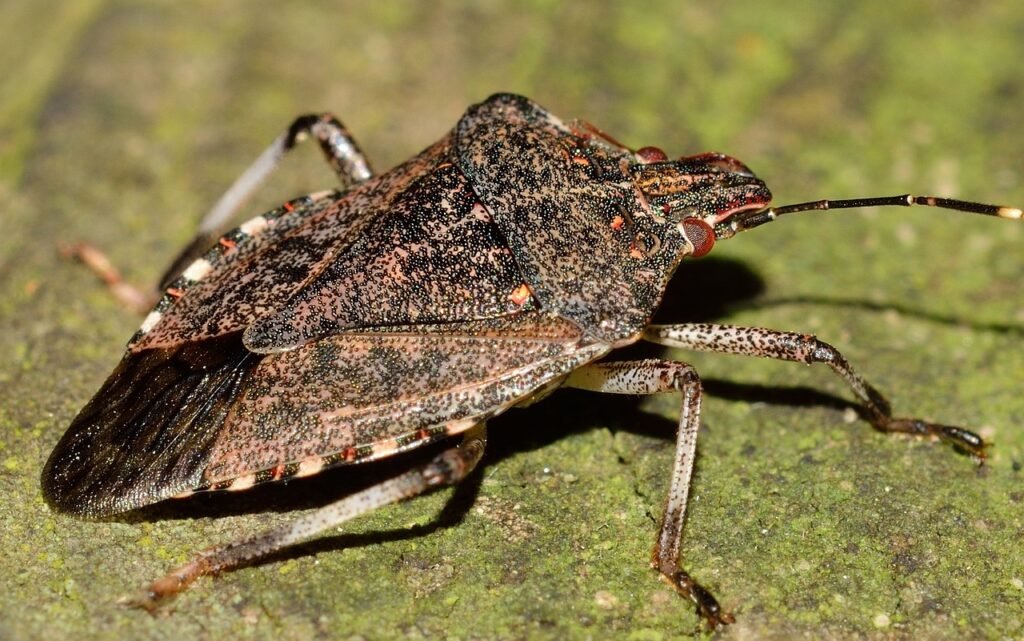
This image is property of pixabay.com.
Health Effects of Bed Bug Bites
Bed bug bites can cause various health effects, and it’s essential to understand how to identify and treat them.
Identification of Bed Bug Bites
Bed bug bites often appear as small, red welts on the skin, similar to mosquito bites. However, they can vary in appearance from person to person. Bites may be accompanied by itching, swelling, and a burning sensation.
Treatment for Bed Bug Bites
In most cases, bed bug bites will resolve on their own within a week or two. To alleviate symptoms, you can apply over-the-counter anti-itch creams or lotions and use cold compresses to reduce swelling. It’s essential to avoid scratching the bites, as this can lead to secondary infections.
When to Seek Medical Help
While bed bug bites are generally harmless, some individuals may develop an allergic reaction or experience more severe symptoms. If you notice excessive swelling, blistering, signs of infection, or if the bites persist or worsen over time, it is recommended to seek medical attention.
Unconventional Bed Bug Treatments
Apart from traditional methods, there are some unconventional treatment options that are often explored. However, it’s important to note that these methods may not be as effective or scientifically proven as traditional treatments. Here are a few examples:
Natural Remedies
Certain natural remedies, such as essential oils, diatomaceous earth, or herbal sprays, are often suggested as bed bug treatments. While some of these remedies may have repellent properties, there is limited scientific evidence to support their effectiveness in completely eradicating bed bug infestations.
Electronic Bed Bug Repellants
Some electronic devices claim to repel bed bugs through the emission of ultrasonic or electromagnetic waves. However, research has shown that these devices are generally ineffective in controlling bed bug infestations. It’s best to rely on proven methods for maximum efficacy.
Homemade Traps
Homemade traps, such as sticky traps or DIY insecticides, are sometimes used to catch or kill bed bugs. While these traps may capture a few bed bugs, they are unlikely to eliminate an entire infestation. Professional treatments and preventive measures are still necessary for long-term eradication.
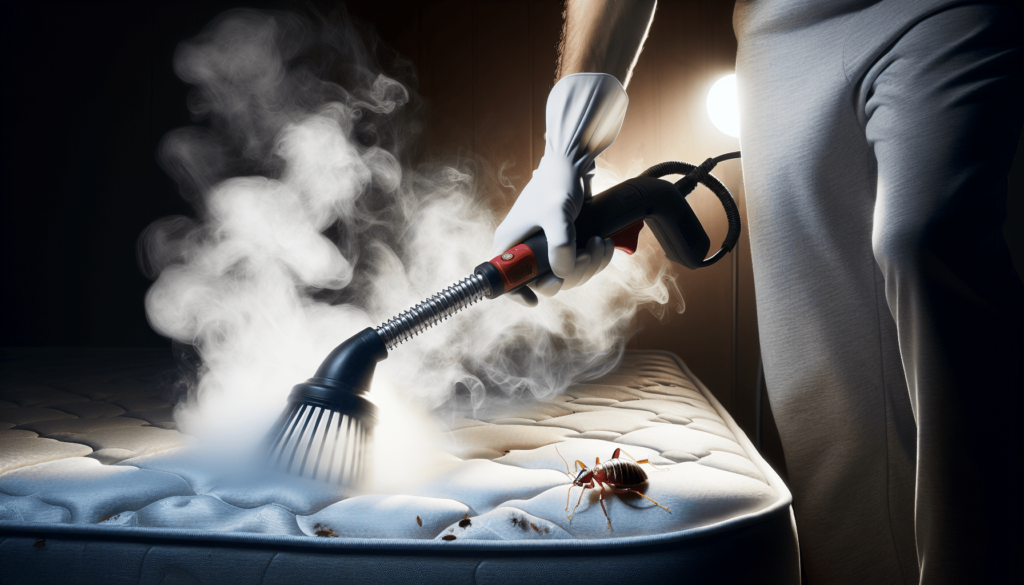
Facts and Myths about Bed Bugs
There are several facts and myths surrounding bed bugs. It’s crucial to separate fact from fiction to better understand these pests’ behavior and effectively combat infestations.
Survival without Food
Contrary to popular belief, bed bugs cannot survive indefinitely without a blood meal. While they can go for several months without feeding, bed bugs require regular blood meals to reproduce and survive. Starving them out is not a practical solution for eliminating an infestation.
Resistance to Pesticides
Bed bugs have developed resistance to certain insecticides over time. This resistance, coupled with their ability to hide in tiny cracks and crevices, can make eliminating infestations challenging. It’s crucial to use a multi-faceted approach and employ professional-grade products to combat resistant bed bug populations effectively.
Spread of Diseases
While it’s true that bed bugs are not known to transmit diseases, their bites can still cause discomfort and potential secondary infections. It’s important to address bed bug infestations promptly to minimize the risk of health complications.
Impact of Bed Bugs on Society
Bed bug infestations have far-reaching implications that extend beyond individual homes. The impact of bed bugs on society can be seen in various aspects, including the economy, mental health, and public health.
Economic Impact
Bed bug infestations can be financially burdensome for individuals and businesses. The costs associated with pest control services, replacing infested furniture, and treating related health issues can be significant. Furthermore, the reputation damage caused by infestations in commercial settings, such as hotels and rental properties, can have long-term economic consequences.
Psychological Impact
Bed bug infestations can have a profound psychological impact on affected individuals and their families. The stress, anxiety, and sleep disturbances caused by the presence of bed bugs can lead to a decline in mental health and overall well-being. It’s important to address both the physical and psychological aspects when dealing with bed bug infestations.
Public Health Implications
While bed bugs are not known to transmit diseases directly, their presence can indirectly impact public health. In densely populated areas, such as apartment buildings or hotels, bed bugs can easily spread from one unit to another, leading to widespread infestations. Effective control and prevention measures are necessary to minimize the risk of infestations in community settings.
In conclusion, understanding bed bugs and their habits is crucial for effective control and eradication. From identifying signs of infestation to implementing preventive measures, it’s important to take prompt action to address bed bug issues. Whether utilizing DIY methods or seeking professional help, the goal is to eliminate infestations and restore peace of mind. Remember, early detection and intervention are key to keeping bed bugs at bay.
